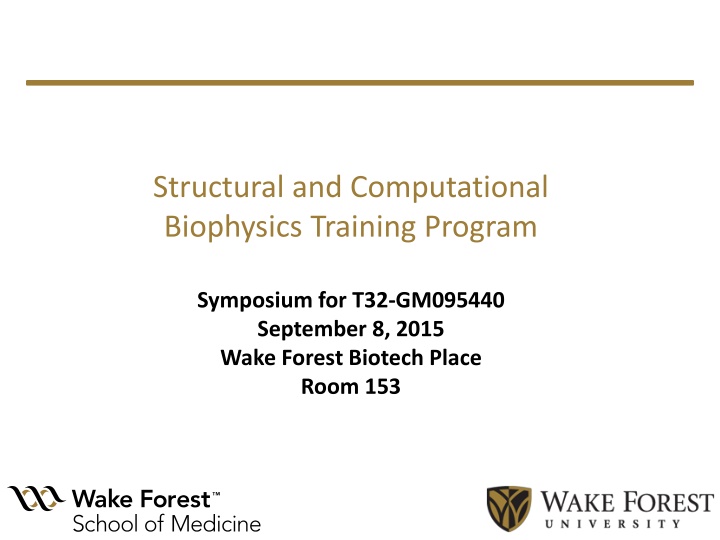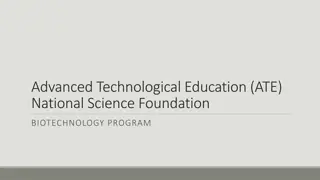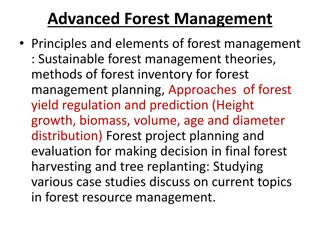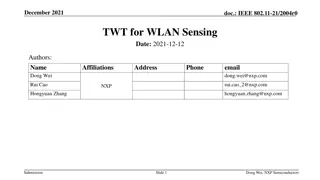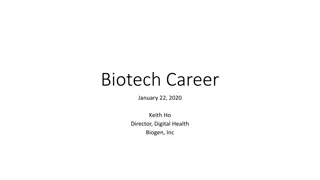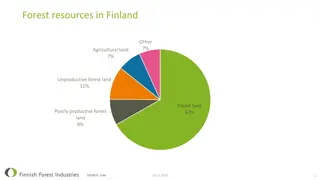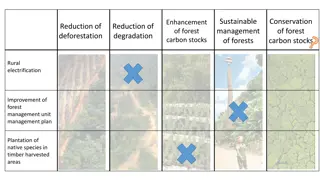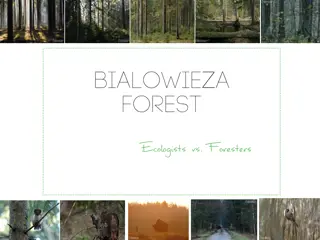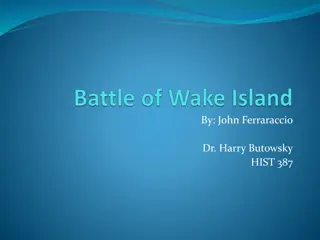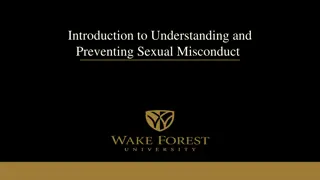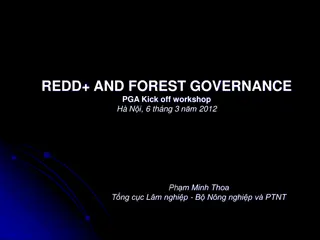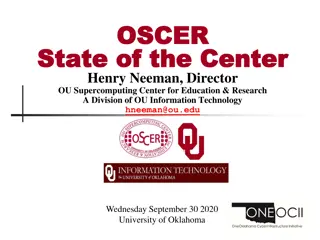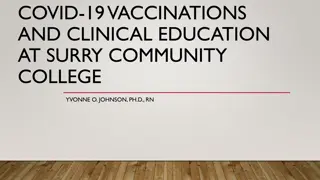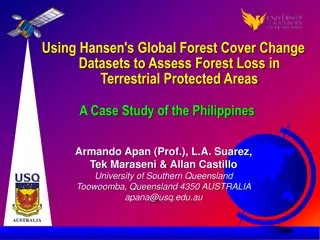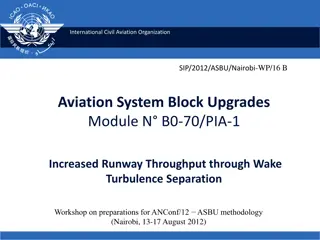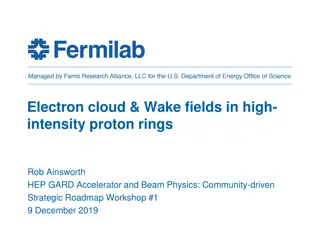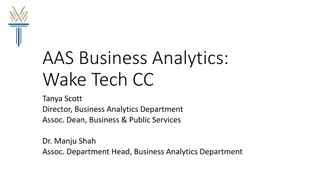SCB Training Program Symposium 2015 - Wake Forest Biotech Place
The Structural and Computational Biophysics Training Program Symposium for T32-GM095440 took place on September 8, 2015, at Wake Forest Biotech Place. The symposium covered various training opportunities, including courses in biological systems, nucleic acid biochemistry, drug discovery, biological spectroscopy, biophysics, and more. Additionally, discussions and career workshops were held, focusing on diverse career paths in biotechnology, pharmaceuticals, tech transfer, and intellectual property. The event emphasized the importance of training for a variety of careers, offering internships and combined degree programs. A site visit for the SCB Training Grant was also scheduled for October 19, 2015.
Download Presentation

Please find below an Image/Link to download the presentation.
The content on the website is provided AS IS for your information and personal use only. It may not be sold, licensed, or shared on other websites without obtaining consent from the author.If you encounter any issues during the download, it is possible that the publisher has removed the file from their server.
You are allowed to download the files provided on this website for personal or commercial use, subject to the condition that they are used lawfully. All files are the property of their respective owners.
The content on the website is provided AS IS for your information and personal use only. It may not be sold, licensed, or shared on other websites without obtaining consent from the author.
E N D
Presentation Transcript
Structural and Computational Biophysics Training Program Symposium for T32-GM095440 September 8, 2015 Wake Forest Biotech Place Room 153
Training Opportunities in the SCB Program Fall semester 2015 courses MCB 711: Biological Systems and Structures Oct. 5 Nov 23 Course Director: Thomas Hollis CHM ?: Nucleic Acid Biochemistry Begins mid-October Course Director: Rebecca Alexander
Training Opportunities in the SCB Program Spring semester 2016 Courses Drug Discovery, Design, and Development - Molecules to Medicines (CHM 740, also listed as BICM 740) Course Director: Roy Hantgan MCB 712: Biological Spectroscopy Course Director: Leslie Poole PHY 607/625: Biophysics with lab Course Director: Fred Salsbury SCB Journal Club
SCB Discussion Group Discussion Group meets at Foothills, Mondays at 4:00 September 28: Uli Bierbach and Sam Cho October 26: Adam Hall s group November 23: TBD
Training for a Diversity of Careers Career workshops SCB-sponsored workshops Shared workshops with Graduate School and other T32 training programs Courses Principles and Practice of Teaching Biochemistry (BICM 717, 718) Drug Discovery, Design, and Development - Molecules to Medicines (CHM 740, also listed as BICM 740)
Training for a Diversity of Careers (cont.) Internships Biotechnology (Targacept, Keranetics) Pharma (GSK) Tech Transfer (Wake Forest Innovations) Intellectual Property (Kilpatrick Townsend & Stockton, LLP) Combined Degrees Ph.D.-M.B.A. M.D.-Ph.D.
Reminder: SCB Training Grant Site Visit October 19, 2015
Student Poster Presentations Session 1 Session 2 Student Macnamara Black Zheng Wang Zahid Mauney Davis Nelson Student Moore Bolduc Lawson Smelser Keyes Melvin Godwin Xiao
Structural and Computational Biophysics Certificate: History and Curriculum Fred Salsbury, Physics, SCB Certificate Program Director
History Founded in 2004 between the departments of physics, computer science, chemistry and biochemistry; expanded to included mathematics and biology. Then with the track revisions of the graduate school expanded to MCB track. Has had students from Computer Science (MS), Mathematics (MS), Biochemistry (PhD) and Physics (PhD) Small program: 3 declared certificate candidates in physics and biochemistry; 4 others are attending journal club & have expressed interest Formal name: Interdisciplinary Graduate Track in Structural and Computational Biophysics Legacy name: it pre-dates current tracks and certificates Overlaps with the SCB training grant in faculty and students but is distinct from it
Purposes 1) To attract more students interested in structural and computational biophysics and biology (SCB) to Wake Forest 1) Note: the SCB Certificate has a broader focus that the training grant 2) To promote interaction amongst faculty and students interested in SCB 1) This is done through our discussion group at Foothills 3) To provide students with broader training and exposure in SCB outside their discipline (and to credential that experience) 1) Through the discussion group and the curriculum
Faculty 1) 26 faculty: 7 Biochemistry, 5 Physics, 5 Computer Science, 3 Biology, 3 Chemistry, 2 Mathematics, 1 BME 2) Includes 10/11 current training grant faculty 3) Obviously, involvement varies from faculty to faculty 4) Short on junior faculty (one Research Assistant professor from Biochemistry, one new assistant professor from BME)!
Curriculum 1) The curriculum for whatever degree (PhD or MS) the student is seeking 1) For the MS degree, must be a thesis option MS. 2) 15 hours in SCB-related courses including 2 hrs in each of three areas, 1 hours of discussion group for credit and 2 hours of journal club (the other 6 hours are in the student s area of specialty) 1) There is a vastly incomplete list of courses in the graduate bulletin 2) The program director approves courses 3) Deliberately flexible 3) The thesis/dissertation committee must have members from three different SCB departments 1) The RAC doesn t need to.
Courses I 1) SCB courses 1) SCB 701 -> Journal club. 1) During times of low enrollment this has been cross-listed with the physics department biophysics seminar 2) Last two years has meet every semester & has had a yearly theme. Biophysics of Drug Discovery this year 2) SCB 710 -> Discussion group 1) At Foothills, has focused on promoting interaction amongst faculty and research groups 2) Attendance has risen the last couple years 2) Chemistry/Biochemistry 1) Usually meet through MCB 701 or CHM 670; CHM/Phys 641 (rarely); other options do exist.
Courses II 3) Biophysics 1) Phy 607 (Biophysics), 620 (Physics of Biological Macromolecules), or Phy 685 (fewest options). 4) Computer Science/Mathematics/Statistics 1) Because of the new stats classes in math, the graduate bulletin is most out-of-date for this areas 2) This is the hardest usually for biochemistry students to decide on 3) This has the most number of choices 1) Usually, what course(s) would be most appropriate to someones research. 2) examples include CSC 685 (Bioinformatics), CSC 652 (Numeric Linear Algebra), MTH 656 (Statistical Methods)
